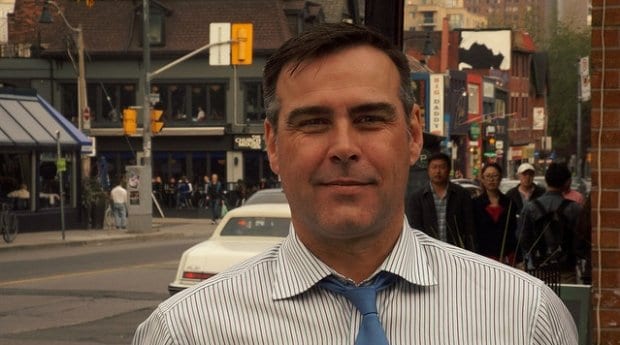As Ontarians prepare to go to the polls June 12, in what is perhaps the first election in a generation where queer issues aren’t a major ballot issue, some say the queer agenda is over. But activists believe the parties’ records on education, reproductive rights and trans issues ought to weigh on queer voters.
Queer Ontario chair Nick Mulé says that two years after passing the Accepting Schools Act, which required schools to create gay-straight alliances if students requested them, some schools are resisting the law.
“There just isn’t a lot of attention being placed by the government on the implementation across the province,” Mulé says. “A fairly high example of that is the [Christopher] Karas case in Mississauga.”
Mulé says Queer Ontario wants the province’s public Catholic school system abolished. “Queer Ontario has a position that Catholic school boards should not be funded with public tax dollars,” he says. “A lot of money could be saved if one religion was not continued to be funded by the public tax dollars.”
But the only party that even approaches the subject is the Greens. They have pledged to abolish the public Catholic system. “We can save $1.5 to $2 billion per year in merging the school boards, but the big issue for me isn’t the money; it’s the human rights issues that come to the fore,” says Toronto Centre candidate Mark Daye. “There’s lots of teaching jobs that are unavailable [to LGBT people and non-Catholics]. And there are LGBT teachers in the Catholic board who are living in the closet, and they can’t come out because they’re afraid of losing their job.”
Another emerging front for queer rights is in reproductive health. Both the Liberal Party and the NDP have pledged in their platforms to expand OHIP to cover one round of in vitro fertilization (IVF) treatment for women, a move that could have welcome effects for prospective LGBT parents. The Progressive Conservatives would not fund IVF.
A single round of IVF treatment can cost up to $10,000. The LGBTQ Parenting Network study “Creating Our Families” shows that queer people often have difficulty accessing reproductive services.
Rachel Epstein, coordinator of the LGBTQ Parenting Network, says that IVF is an emerging trend among gay men who would like to become parents through surrogacy, but the more common reproductive treatments sought by queer people are donor insemination for lesbians and freezing gametes for trans people.
“We interviewed 66 LGBTQ people around the province about experience with reproductive services; all of them spoke about financial access. It often taxes people financially when they go through the process,” Epstein says.
She says the LGBTQ Parenting Network would like to see funding expanded further than what’s being offered by the NDP and Liberals. “In Quebec, they also fund three rounds of IVF and six cycles of donor insemination,” she says.
Even as the election falls on the second anniversary of the passage of the bill that formally added gender identity and expression to the Ontario Human Rights Act, trans people still face difficulty asserting their rights or seeking medical treatment, trans activist Susan Gapka says.
Young people cannot change their names even with supportive parents, and even adult trans people may face difficulty accessing a supportive physician who will sign documents approving a legal change of gender. “Not everybody has a supportive physician that will do that paperwork. We suggested a guarantor,” Gapka says.
Medical services remain incomplete and difficult to access six years after the Liberal government relisted sex reassignment surgery in 2008, Gapka says. OHIP covers only genital surgery, not electrolysis or chest reconstruction. Accessing surgery requires approval from the gender identity clinic at CAMH in Toronto, which is out of reach for trans people in other parts of the province.
“We need more access to these programs in other parts of Ontario. It’s a hardship for people to have to come to Toronto and pay expenses to get approved,” Gapka says.


 Why you can trust Xtra
Why you can trust Xtra


